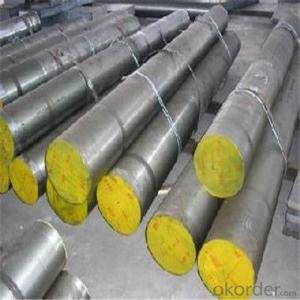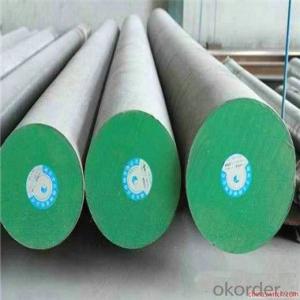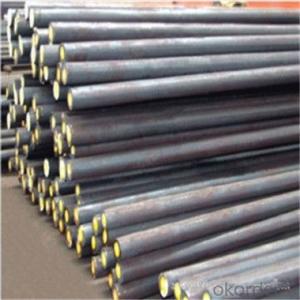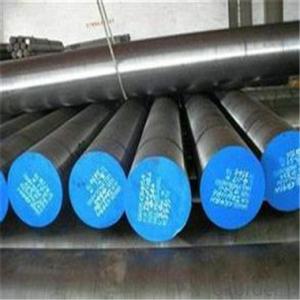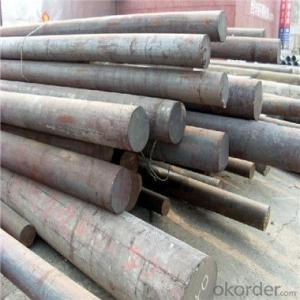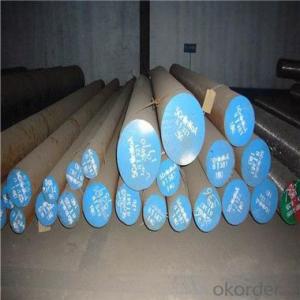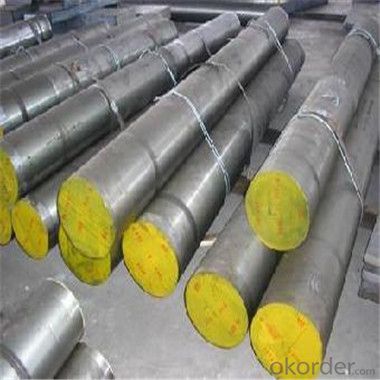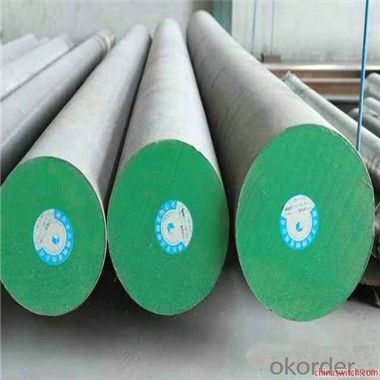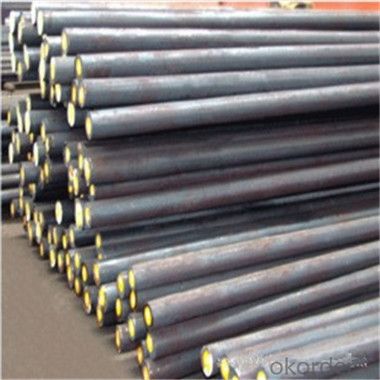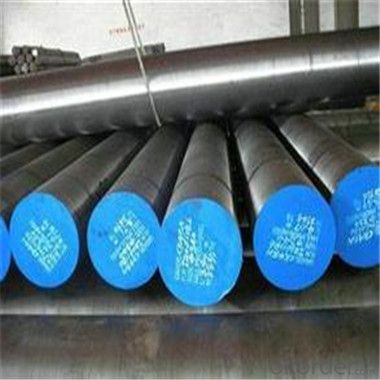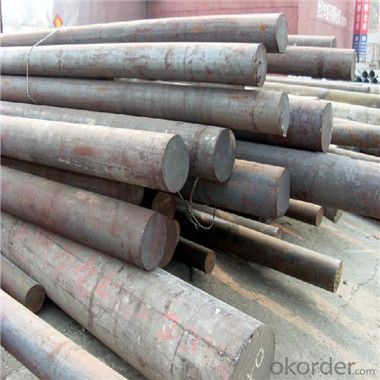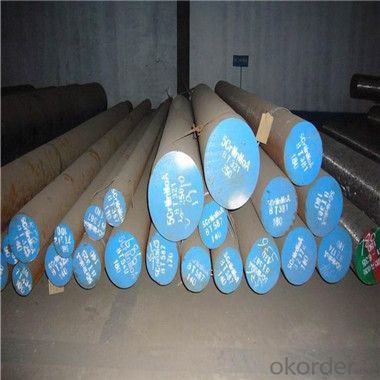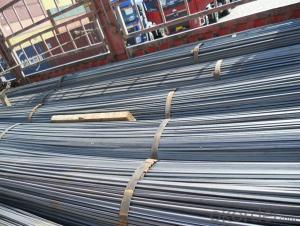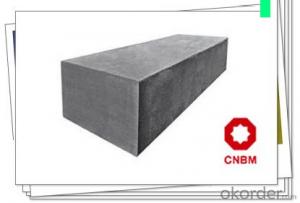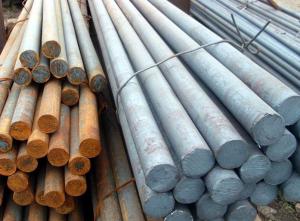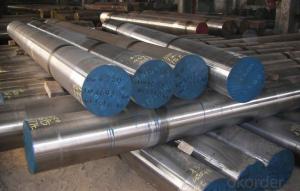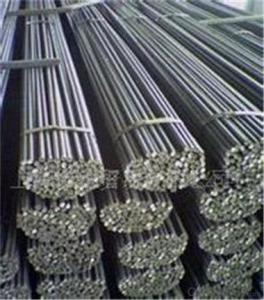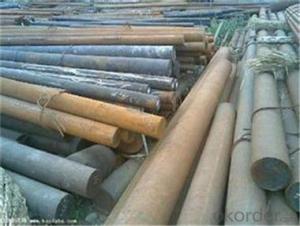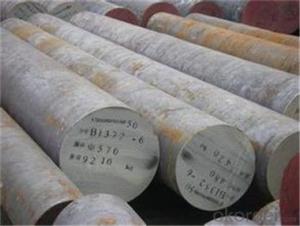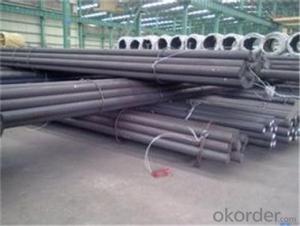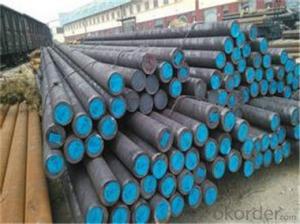HSS Steel Round Bar /High Alloy Round Tool Steel Bar /M2 /M25 /M42 /D2 /H13
- Loading Port:
- China main port
- Payment Terms:
- TT OR LC
- Min Order Qty:
- 5 m.t.
- Supply Capability:
- 100000 m.t./month
OKorder Service Pledge
OKorder Financial Service
You Might Also Like
Specification
1. HSS (M2/W6Mo5Cr4V2/SKH-51/KM-2/1.3342/S600) Round Bar
a)Characteristic:Tungsten-molybdenum high speed steel developed by China,high performance in toughness ,hardness, high temperature hardness.
b)Anneal temperature: 840-860
Relief annealing temperature: 720-760
Hardening temperature: 1210-1230
Hardening medium: salt bath under 600,aslo use oil cooling or air cooling
Normal temper temperation: 540-560 RC Rockwell Hardness after hardening and temperature: 63-66
c)Production Capacity: 1000 Tons/Month
d)Tech:EAF+LF+VD+ESR
e)High strength at elevated temperatures
2. Chemical composition
| C | Si | Mn | W | Mo | Cr | V | P | S |
| 0.80-0.90 | 0.20-0.45 | 0.15-0.40 | 5.50-6.75 | 4.50-5.50 | 3.80-4.40 | 1.75-2.20 | ≤0.030 | ≤0.030 |
3. Process condition
Forged + Annealed + Machining (Peeled/Turned)
Rockwell Hardness: 64-66
Quenching Temperature: 1190-1230
4. Available sizes
Diameter:20mm-80(85)mm(rolled round steel),90-350(400)mm(forged round steel)
Length: optional
5. Heat treatment
1.Annealing after forging:heat to 840-860°c,keep 2-4H,coolbelow to 500°c,hardness≤285HBS
2.Isothermal annealing after forging:heat to 540-860°c,keep temperature 2-4H,furnacecold to 740-760°c,keep temperature 4-6H,to 500°c,hardness≤255HBS.
6. Applications
Can be used in the manufacture of high capacity cutting tools to bear impact force ,such as gear shaper cutter, milling cutter,screw tap,drill bit etc.Also can be used in manufacture of large scale and thermoplasticity shaped cutting tools and antiabrasive cutting tools under high load
7. Packing situation
Standard seaworthy packing or as customers' requirement.
8. Delivery time
30 days after order is confirmed.
9. Products
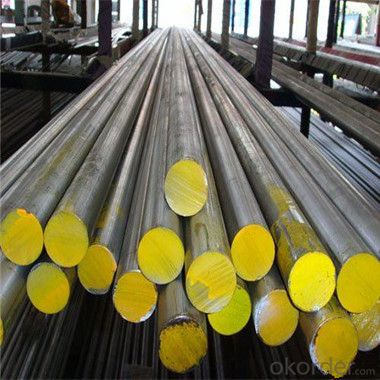
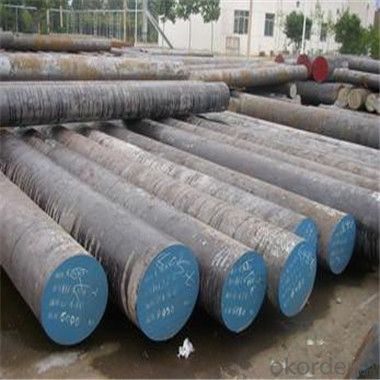
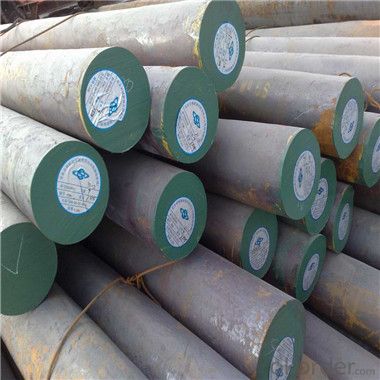
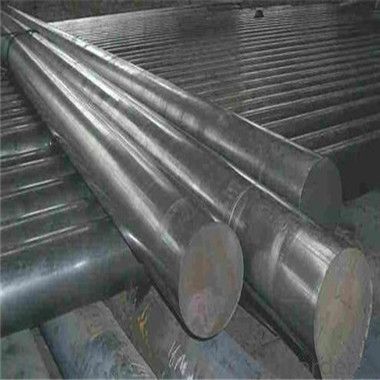
- Q: Can steel round bars be coated with protective finishes?
- Yes, steel round bars can be coated with protective finishes. Coating steel round bars with protective finishes is a common practice to enhance their durability and resistance to corrosion. There are various types of protective finishes that can be applied to steel round bars, including but not limited to galvanizing, powder coating, and epoxy coating. These finishes help to prevent the steel bars from rusting and deteriorating over time, extending their lifespan and ensuring their performance in various environments. The choice of protective finish depends on factors such as the intended use of the steel round bars, the level of exposure to moisture or corrosive substances, and the desired aesthetic appearance.
- Q: What is the difference between a bright and a cold finished steel round bar?
- A bright steel round bar and a cold finished steel round bar are two distinct types of steel bars that differ in their manufacturing processes and resulting characteristics. A bright steel round bar, also known as a turned or polished bar, undergoes a process called turning or polishing. During this process, the rough steel bar is rotated on a lathe machine and a cutting tool is applied to remove the outer layer of the bar, resulting in a smooth and shiny surface. This process not only enhances the appearance of the bar but also improves its dimensional accuracy and surface finish. Bright steel round bars are commonly used in applications where aesthetics and a high-quality surface finish are important, such as architectural components, decorative items, and certain automotive parts. On the other hand, a cold finished steel round bar undergoes a different manufacturing process called cold drawing or cold rolling. In this process, the hot-rolled steel bar is passed through a series of dies at room temperature, reducing its diameter and increasing its length. This cold working process gives the steel bar improved mechanical properties, such as increased tensile strength, improved yield strength, and enhanced dimensional accuracy. Cold finished steel round bars are often used in applications that require high strength and precision, such as shafts, gears, bolts, and tools. In summary, the main difference between a bright steel round bar and a cold finished steel round bar lies in their manufacturing processes and resulting characteristics. While a bright steel round bar is turned or polished to achieve a smooth and shiny surface, a cold finished steel round bar undergoes cold drawing or rolling to enhance its mechanical properties and dimensional accuracy. The choice between these two types of steel bars depends on the specific requirements of the application, such as the need for aesthetics, surface finish, strength, or precision.
- Q: Can steel round bars be welded?
- Steel round bars can indeed be welded, as welding is a widely employed technique for connecting them. This involves heating the bars to a considerable temperature and subsequently applying pressure to fuse them, resulting in robust and long-lasting connections. Nonetheless, it is crucial to utilize suitable welding techniques and equipment in order to attain a weld of superior quality.
- Q: Can steel round bars be used for making bearings?
- Making bearings can indeed involve the use of steel round bars. However, it is crucial to acknowledge that the suitability of steel round bars for bearing applications relies heavily on the specific type of steel utilized and the manufacturing process employed. Bearings commonly encounter high loads and necessitate qualities such as good wear resistance, low friction, and high durability. For this reason, steel round bars made from top-notch alloy steels, such as chrome steel or stainless steel, are frequently employed in bearing production due to their exceptional mechanical properties. These steel round bars undergo particular heat treatment procedures, such as quenching and tempering, to enhance their hardness, strength, and wear resistance. Moreover, the round bars are usually machined with precise tolerances to ensure proper fit and alignment within the bearing assembly. To guarantee the most optimal performance, reliability, and longevity of bearings under various operating conditions, it is essential to seek advice from materials and manufacturing experts or consult industry standards. This will ensure the appropriate selection of steel round bar material and manufacturing processes for bearing applications.
- Q: How do steel round bars compare to aluminum round bars?
- Steel round bars are generally stronger and more durable than aluminum round bars. They have a higher tensile strength, making them suitable for heavy-duty applications that require high levels of strength and resistance to bending or deformation. Aluminum round bars, on the other hand, are lighter and more corrosion-resistant, making them ideal for applications that prioritize weight reduction and resistance to exposure to harsh environments. The choice between steel and aluminum round bars ultimately depends on the specific requirements of the application.
- Q: What are the common industries that use steel round bars?
- Some common industries that use steel round bars include construction, manufacturing, automotive, aerospace, oil and gas, and machinery.
- Q: What is the difference between a smooth and a precision ground steel round bar?
- A smooth steel round bar refers to a steel rod that has a plain surface without any specific surface treatment or finishing process. It is typically produced through hot rolling or cold drawing methods, resulting in a basic cylindrical shape with a relatively rough surface texture. Smooth steel round bars are commonly used in various applications where a smooth exterior finish is not a critical requirement. On the other hand, a precision ground steel round bar undergoes an additional manufacturing process to achieve a more precise and refined surface finish. The precision grinding process involves removing any imperfections or irregularities from the surface of the steel rod, resulting in a highly smooth and polished finish. This process ensures that the diameter of the round bar remains consistent along its length and that the surface has a superior level of finish and accuracy. Precision ground steel round bars are widely used in applications that demand tight tolerances, precision machining, or where a smooth and polished surface is essential. Industries such as aerospace, automotive, tooling, and manufacturing often rely on precision ground steel round bars for their high-quality surface finish, dimensional accuracy, and reliable performance. In summary, the main difference between a smooth and a precision ground steel round bar lies in the surface finish and level of precision achieved. While a smooth steel round bar has a basic, rough surface texture and is suitable for general applications, a precision ground steel round bar undergoes additional grinding processes to achieve a highly smooth, polished, and accurate surface finish, making it ideal for applications requiring tight tolerances and precision machining.
- Q: Can steel round bars be machined or forged?
- Yes, steel round bars can be machined or forged. Machining involves using cutting tools to remove material from the round bar to achieve the desired shape or dimension. It can be done through various methods such as turning, milling, drilling, or grinding. Machining is commonly used to create precise components or parts. On the other hand, forging is a process where the steel round bar is heated and shaped by applying compressive forces. This is typically done using a hammer or a press to deform the material and create the desired shape. Forging helps enhance the mechanical properties of the steel, such as strength and toughness, by aligning the grain structure and removing any internal defects. Both machining and forging methods can be used to shape and manipulate steel round bars to meet specific requirements for various applications in industries such as automotive, construction, energy, and manufacturing. The choice between machining or forging depends on factors like the complexity of the part, required tolerances, material properties, and the desired final product.
- Q: What are the different marking methods for steel round bars?
- The different marking methods for steel round bars include stamping, engraving, etching, laser marking, and inkjet printing. These methods are used to imprint important information such as the grade, size, heat number, manufacturer's logo, and other specifications on the surface of the round bars.
- Q: What is the tolerance for diameter in steel round bars?
- The tolerance for diameter in steel round bars may differ based on the manufacturer or industry's specific standards and requirements. Typically, a certain range is specified for the diameter tolerance to maintain the desired precision and consistency in the bars' dimensions. This tolerance is usually denoted as a plus or minus value, indicating the acceptable deviation from the specified diameter. To ascertain the precise tolerance for diameter in steel round bars, it is essential to verify the applicable industry standards or consult with the manufacturer, as it can vary depending on the intended application and manufacturing process employed.
Send your message to us
HSS Steel Round Bar /High Alloy Round Tool Steel Bar /M2 /M25 /M42 /D2 /H13
- Loading Port:
- China main port
- Payment Terms:
- TT OR LC
- Min Order Qty:
- 5 m.t.
- Supply Capability:
- 100000 m.t./month
OKorder Service Pledge
OKorder Financial Service
Similar products
Hot products
Hot Searches
